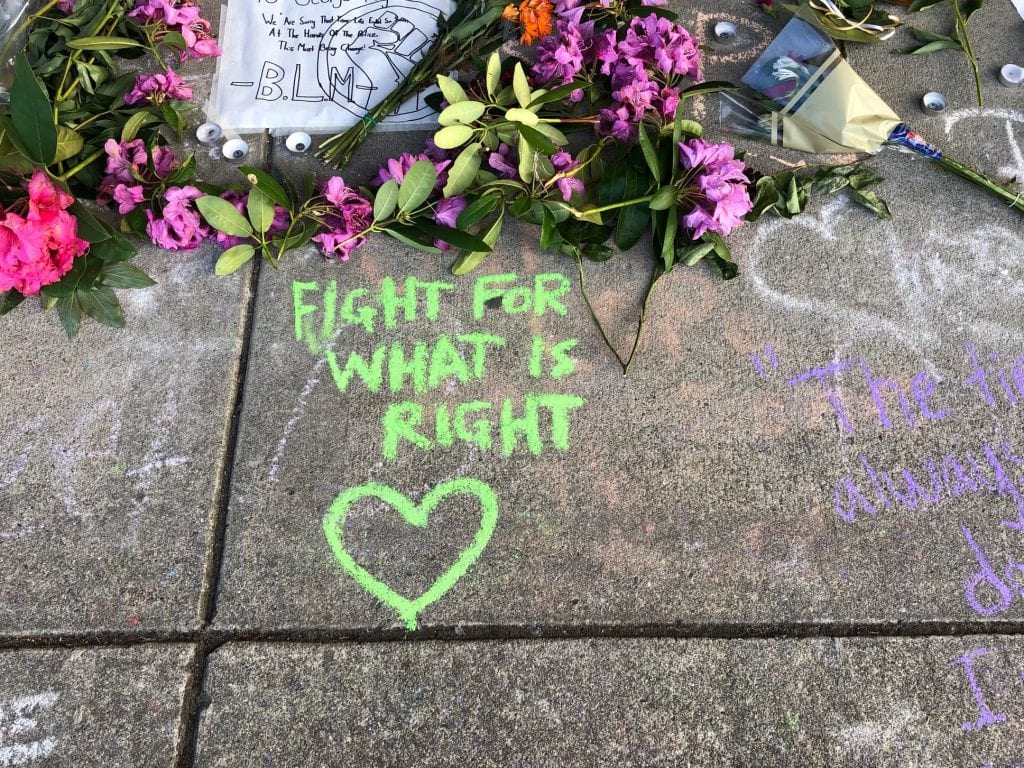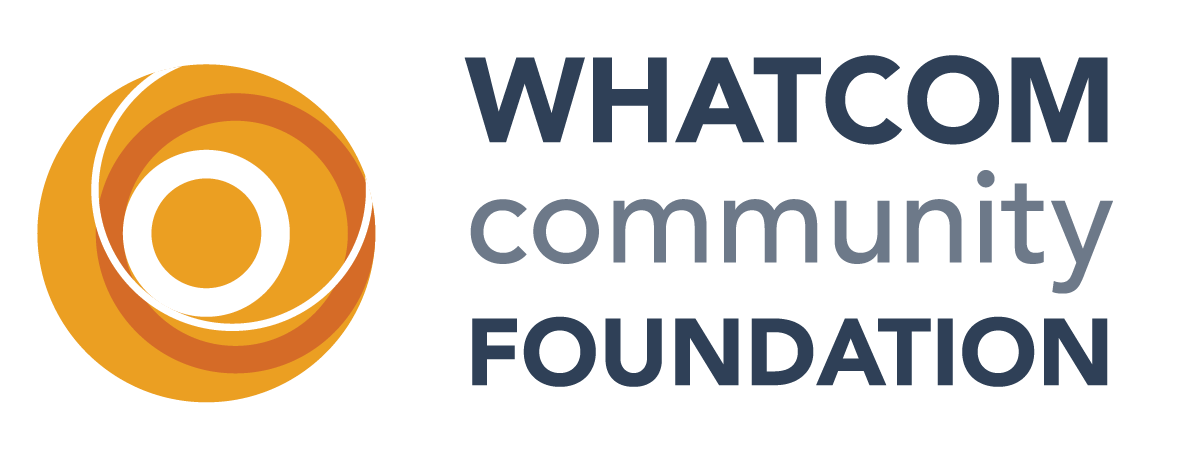
Black Lives Matter
We’re late. The racism that has played out in our local communities and across the U.S. in brazen as well as invisible ways has been at play for centuries. When your vision is “everyone who lives here thrives,” your commitment to that vision must be visible, audible and palpable. While I believe that the Community Foundation’s work speaks for itself, that does not excuse us from the mandate to speak for the work.
Racism is so deeply rooted in this country that Black mothers and fathers know they must teach their children, particularly their sons, how to navigate the world outside their home to minimize the risk of harm. Don’t touch the stove. Look both ways before crossing. Always be on your guard because White people see you as a danger. Rather than accident prevention, “The Talk” teaches defense as an integral part of simply being in the world.
It should not be considered controversial to value all human lives equally. It should not be this hard to treat one another like human beings.

I don’t know what makes this time seem different (and I hope it is). Why are the protests being sustained and even growing? Perhaps it’s the after-effects of the lock-down or a tipping point, as one commentator described it, of “lives lost, squandered and crushed being made visible to America [and the world].” Squandered. Precious, irreplaceable lives wasted. Whatever the reason(s), we cannot squander this moment.
We often describe the Community Foundation as a Swiss Army knife: numerous tools at the ready in service to mission, vision and values. What tools do we need right now? As someone who values language and discourse, I know they are not enough. For some, conversation is an academic exercise, self-indulgent navel gazing, detached from and without value in daily life for the average person.
We launched Project Neighborly on Election Day 2016 precisely because it was not about who won. It was about inviting curiosity among and about the people who share this place so that new connections can be established. Connections to be strengthened over time and relied upon to inform the work of building community. There are powerful examples from the three rounds of Project Neighborly grants (and more to come since the pandemic has interrupted the current round). Our neighbors are designing, making and testing the tools:
· Lummi Nation C.E.D.A.R. Project hosted a Peacemaking Circle to build trust and strengthen relationships within community, learn healthy communication, build connections among people of diverse backgrounds and engage people in community-driven decision making
· Habitat for Humanity organized work parties, including neighborhood as well as build-site improvements, to help introduce residents living in neighborhoods into which families awaiting their new homes would be moving, replacing faceless newcomers with real people
· Birchwood Elementary’s Family Language Exchange (FLEX) brings families together across cultures to share their language skills and traditions, knitting together a more inclusive school community
Part of acknowledging privilege is overcoming defensiveness. Over my 50+ years on the planet, I’m embarrassed to admit that I’ve made racist comments and decisions rooted in bias. The fact that none were borne out of willful intent to harm doesn’t erase them. I am grateful for a mother who taught and modeled kindness, compassion and lifelong learning. These values make it easier for me to recognize and come to terms with my failings and the wrongs I’ve committed. I am also grateful for the other teachers – some professional trainers and facilitators and others extraordinarily patient, generous people with painful lived experience of racism. Their voices and lessons are my reservoir as I strive to do and be a better person and a better organizational leader.
When the foundation of your work is being pro-community, emphasizing what we’re for rather than against, it’s uncomfortable being ‘anti.’ It seems incongruous and even counterproductive. My job is to live in and embrace that discomfort, to do it with grace and to guide the Community Foundation to do better at being anti-racist. That’s what is required.
A promise and a call to action
If we can’t look inside – our institutions and ourselves – we will never make the changes necessary to realize the vision that everyone who lives here thrives. The board of directors and staff of the Community Foundation have been on an equity journey for several years. That journey never ends. My promise to you is that we will make that work and our learnings more visible, audible and palpable in the communities across Whatcom County.
We invite other organizations – public and private – and you, as individuals, to join us. You will be in good company as there are many others across Whatcom County already doing incredible equity and explicitly anti-racist work. They know that their visions, aspirations, our communities and human lives depend on it.
There is a growing body of resources available to make this vital work a bit easier to navigate. The Management Center has worked with a wide range of nonprofit organizations and offers a way to approach the ‘why’ of this work for organizations as well as a road map to get started. You need not be a nonprofit; every organization has a ‘mission’ or purpose whether it’s been articulated or not. The outstanding library systems serving Whatcom County have posted anti-racism resources on their sites for all ages.
Bellingham Public Library (WA Anytime Library)
If you would like to learn more about the path we’ve taken, we’ll be sharing more about that in the coming weeks and months. And, we’ll be reaching out for your ideas, insights and help.
It is actually harmful to deny that racist behavior happens in our organizations and communities. There not here. Them not us. It sends the message that we are somehow immune or special, safe from the evils of racism. It is untrue and it ignores the work we must do. Our work as one community made up of many, as organizations and institutions and, most fundamentally, as individuals is clear. While we find and develop more tools for that work with your help, we’ll use the ones we have, including our words.





No Comments